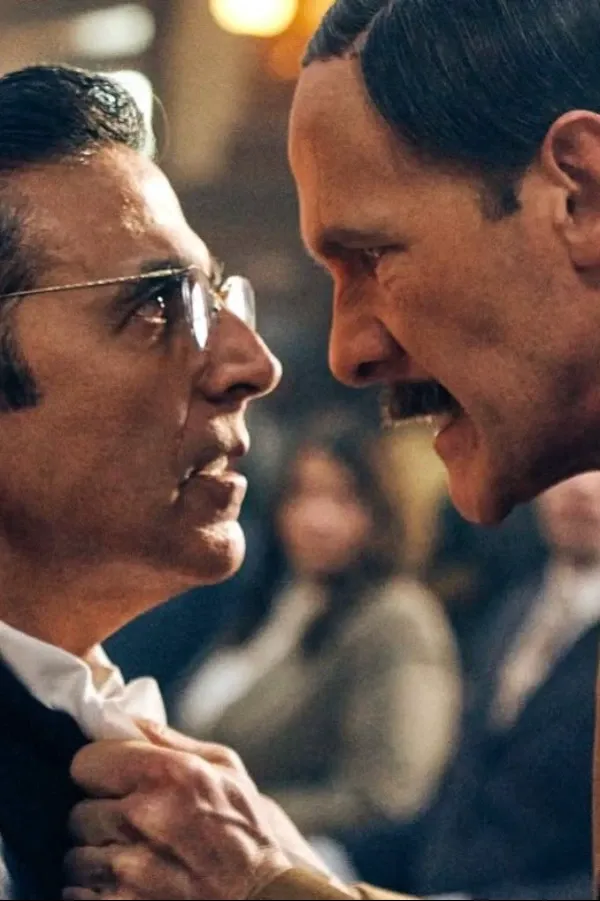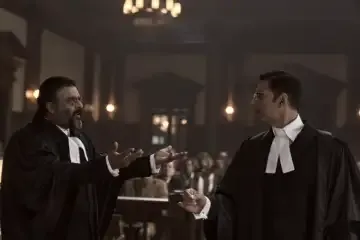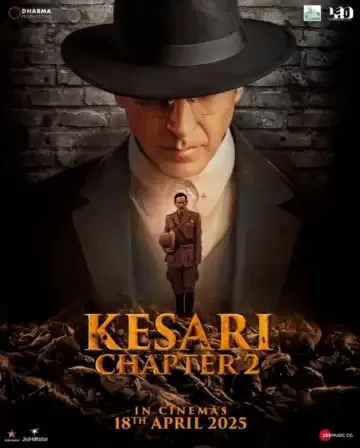
Karan Johar's directed by Karan Singh Tyagi released in theatres and received rave reviews from the film critics.
Starring as lawyer C Sankaran Nair, Kesari Chapter 2 also stars R Madhavan and Ananya Panday in the lead roles.
The film claims to tell the tale of the aftermath of Jallianwala Bagh massacre and how C Sankaran Nair sued the crown and General Reginald Dyer of genocide.
The main crux of the film is the court case that C Sankaran Nair fought against the British Raj. But unfortunately, I couldn't find a single mention of such a case anywhere on the internet after watching the film.
I instead came across a couple of articles that mentioned that the court case depicted in Kesari Chapter 2 is imaginary.
 © Dharma Productions
© Dharma Productions
What Was Shown In The Film
The film starts with the Jallianwala Bagh massacre and we are then introduced to C Sankaran Nair who is touted as India's best lawyer who never lost a single case.
Nair is initially shown to be team British Raj and is even knighted for his service. He is also made a member of the Viceroy's commission team investigating the accusations against General Reginald Dyer.
Despite Nair finding Dyer guilty of the accusations, the committee finds him not guilty and wrongly calls it a unanimous decision.
An aghast Nair with the help of a local rookie lawyer Dilreet Gill sues the crown and General Dyer of genocide in Jallianwala Bagh.
The rest of the film is about the heroics of Akshay Kumar's Sankaran Nair against R Madhavan's Neville McKiney, General Dyer and the British Raj.
The film ends with another case, a contempt of court one, against Nair where he brings the British Raj on its knees in front of the world media.
 © Dharma Productions
© Dharma Productions
What Actually Happened
According to a report in India Today, it's true that C Sankaran Nair was knighted for his service for the British empire but it wasn't because he got the revolutionary poet Kirpal Singh arrested as shown in the film.
It is true that the British asked the Hunter Commission to examine the recent "disturbances" in India. However, not one but three Indians were a part of the committee. Moreover, C Sankaran Nair was not one of them.
During their investigation, the Hunter commission inquired about the allegations against General Dyer and on the basis of their findings, he was relieved of his duties.
Contrary to what was shown in the film, General Dyer wasn't tried for any case including genocide in the court of law by C Sankaran Nair or any other lawyer.
While C Sankaran Nair wasn't a part of the Hunter commission, he was a member of the Viceroy's Executive Council till July 23, 1919.
After his resignation, he joined the Secretary of State, Edwin Montagu's council on January 2, 1920.
Around three years after the Jallianwala Bagh massacre, in 1922, Nair wrote a book Gandhi and Anarchy where he criticised Mahatma Gandhi's civil disobedience movement.
In the book, he also implied that the Punjab atrocities were committed with Michael O'Dwyer's full knowledge and approval.
 © Dharma Productions
© Dharma Productions
For those unaware, Michael O'Dwyer was the Lt Governor of Punjab at the time of the massacre and General Reginald Dyer ordered firing.
O'Dwyer filed a defamation case against C Sanakaran Nair and demanded an apology. But, when Nair refused to apologise, O'Dwyer took the case to the King's Bench in London.
Nair didn't represent himself but hired different lawyers. However, he eventually lost with only one jury member favouring him.
According to a report in Rediff, General Dyer's involvement in the Jallianwala Bagh massacre was the major part of the case but he never appeared in court in person citing health issues.
Despite losing the case, Nair was hailed a hero for fighting the case with bravery and was given a place in the martyr's gallery at the Jallianwala Bagh because "it was widely reported in both British and Indian newspapers" and for the first time "the grotesque details of the Punjab atrocities" were brought in the public eye.
 © Dharma Productions
© Dharma Productions
To summarise, C Sankaran did fight a court case but not against General Dyer and not in India.
And no he didn't sue the crown for genocide as shown in the film, instead he was instead sued for defamation by Michael O'Dwyer in London.
The makers could've gone ahead with the exciting and inspiring "real" story of C Sankaran Nair instead of showing us what they wrongly claimed was the "untold story".
As a film, Kesari Chapter 2 makes for an interesting and mildly entertaining watch but it is far away from history as the makers, actors and the marketing claimed.
The Disclaimer
Having said that, the film did say in the disclaimer in the opening credit, "Though this Film is inspired by true events, it is a pure work of fiction created by the filmmaker taking creative liberty with all events projected in this Film".